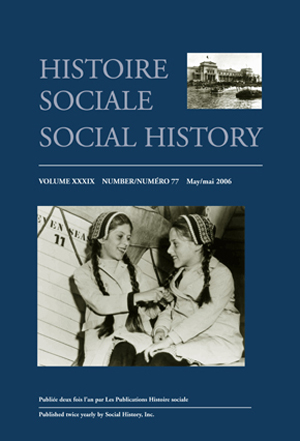Troubling Memories in Nation-building: World War II Memories and Germans' Inter-ethnic Encounters in Canada after 1945
Abstract
For postwar Canadians, especially for those who had served in Europe or had lost relatives and friends in the war, as well as for European immigrants who had suffered under the Nazi terror, the great influx of German-speaking immigrants could pose a difficult personal confrontation with the past. This was also true for the German immigrants. The dominant national narrative, that the Allies had fought a good war against an evil empire, created a gulf between German Canadians and other Canadians and left little room for German immigrants to make sense of their wartime memories. German immigrants interpreted and responded to personal encounters and public representations of the war and the Holocaust in different ways. Some guarded their memories through silence in inter-ethnic relations or withdrew from such relations altogether, while others used such relations to learn more about the past. While multiculturalism helped bridge divides at the individual level, it did not integrate into the national historical memory the experiences of immigrants who had been former enemies.Downloads
Published
2006-05-01
Issue
Section
Nations Unbound: Transnational Connections


